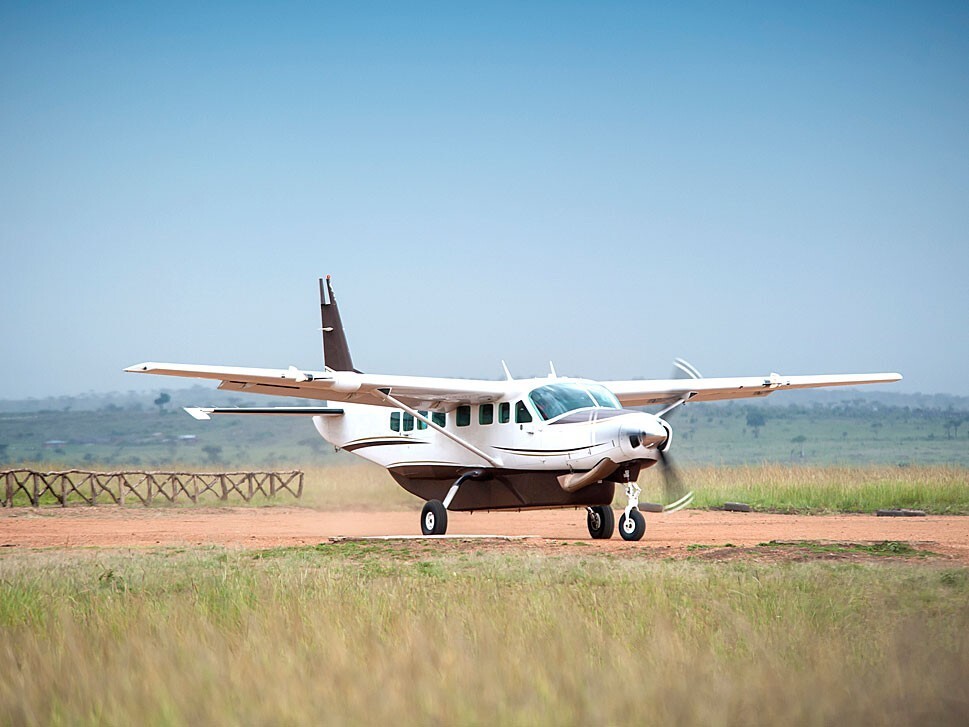- 12 Jul 2022
- Sherryn de Vos
- AvBuyer Africa Articles
Operating Private Planes in Africa: Practical Tips
There are many operational considerations when flying privately in Africa, from obtaining permits, to fuelling, ground handling, and much more. Jane Stanbury asks experts based on the continent for tips on managing these…
Back to Articles
Africa represents a rich diversity of nations, which is matched only by the variety of dynamic Business Aviation operations and regulatory requirements. So, what should owners and operators planning to fly in the region consider before taking off?
For those regularly flying in Africa, the changing regulatory and operational landscape means that being cognizant of all the considerations will go a long way to streamlining operations.
Dawit Lemma, founder and President of Krimson Aviation, an Ethiopia-headquartered flight support, charter brokerage, and aviation services group says, “Expect the unexpected. There really is no one-size-fits-all in Africa.
“Being prepared, planning ahead, and anticipating changes will help manage the disparity of regulations and operating costs.”
Processing and Costs
Lemma says permits are one of the most significant challenges. Each of the 54 African nations has its own permit processing methodology. Unsurprisingly the associated costs vary too. “Some countries don’t charge for the permit, while a neighboring CAA may charge several hundred US dollars for the application, and a subsequent fee once issued.”
Digital processes have not come to fruition as expected despite several countries trying to implement them. JP Fourie, Executive Director of the Aircraft Division at NAC, Africa’s largest General Aviation company, and Vice Chair of the African Business Aviation Association (AfBAA), adds, “Typical planning for flying across Africa involves allowing 72 hours for overflight permits, and that includes the more advanced and developed aviation countries.”
Airport Variations
A dedicated network of Business Aviation airports and FBOs is yet to be established, and most arrivals are processed through main airport terminals, which can slow travel times and add unnecessary complexity. Although this is improving, there are significant differences between countries that aircraft owners should be prepared for.
At busier airports, often home to large national carriers, it is extremely competitive when it comes to being noticed. That’s because commercial strategy is based on large aircraft turnarounds.
Various security checks and procedures must be undertaken before ramp access is allowed at some larger airports, and private aircraft will most likely be parked at the far end of the apron. Business jets are not always deemed lucrative, and consequently services, capabilities, and the associated fees may change daily.
Some airports are less hectic, “There appear to be more pleasant and simplistic processes and handling in Uganda and Sudan, for example, and in Algeria, our flight plans get dealt with promptly, and our handling service provider is prompt, efficient, professional and on time,” says Lemma.
Kamuza International in Malawi is even less complex he says. “You simply walk across the ramp, get to the terminal outbuilding where you hand-file a paper flight plan, get your weather, and consult a large and very aged aviation area map for your planning purposes.”
Consistent Inconsistency…
It is not just the airport experience that varies so much. “Fuel fees are particularly susceptible to change as in parallel with the rest of the world,” Lemma continues. “Costs are driven not just by regional fees, but by international, and global economics. The strength of the local oil and gas industries does not translate to competitive fees.”
Inflight service availability is also far from standardized. Onsite catering for business aircraft is limited, and catering services are often fulfilled by local restaurants or hotels. According to Lemma, “The quality, and more importantly the fees, are incomparable, the only consistency is the inconsistency.”
Practical Tips for Operating in Africa
Although operations can still be a challenge, African governments are finally beginning to understand the value private aviation offers. New-build FBOs and airports are underway, and local FBOs are aiming to incorporate internationally recognized standards to help align Africa with the rest of the aviation world.
Until then, Fourie and Lemma offer some sound advice for frustration-free operations in Africa.
Paperwork: “Cumbersome rules and regulations, paperwork, and other red-tape tend to clutter efficiency and not necessarily add to the safety aims they were originally implemented for,” says Fourie.
Ensure all documents relating to aircraft, crew, passengers, and operators are current and available. Ironically Fourie notes that retaining its FAA audit rating is of paramount importance for some nations, and this can lead to complex paths of regulatory compliance.
Be Prepared: Always have up-to-date airport charts, flight plans, and weather reports to hand. If modifications are needed, ease of access will streamline changes.
Be sure the valid entry and exit points are open. Lemma says, “Construction and maintenance, animal incursions, or power outages can all affect operating times.” Be aware of airport closures. Military exercises and, unfortunately, armed conflict can restrict airspace unexpectedly.
Having a Plan B will smooth necessary mid-route changes as the need to modify flight plans is a frequent occurrence and is often accompanied by new fee structures. Lemma also suggests carrying ready cash for these incremental increases.
Confirm Exact Pricing: Quotes are just that, estimates, and they may alter. “Always ask for a detailed breakdown, and query if there may be extra fees,” Lemma advises, citing that some airports may give you a quote for arriving, but then add a supplement for switching on the lights for a night arrival.
Suppliers may add an administrative fee that originates with the trip planner. Fuel quotes are particularly subject to increases, so always confirm the fee you see is the one you’ll pay. Fourie adds, “Without fail, you need to pay landing, parking, and other fees in US Dollars irrespective of the country you are in.”
Cultivate Relationships: Establishing and maintaining strong local relationships is essential. Creating a network of partners will improve operational experiences and reduce overall costs as trust is built.
“Employ locally knowledgeable professionals to prepare flights,” says Fourie, suggesting that talking to colleagues and competitors for recommendations is a great way to find the right contacts.
“Share learnings, disappointment, or unexpected wins and surprises. References and word-of-mouth have never failed to be the general yardstick indicating the highest probability of a positive outcome, and experience.”
Related Articles
- 17 May 2022
- Sherryn de Vos
- AvBuyer Africa Articles
- 16 Jun 2021
- Sherryn de Vos
- AvBuyer Africa Articles


